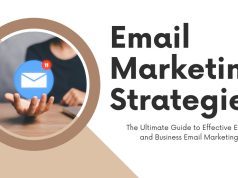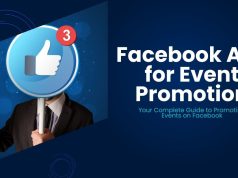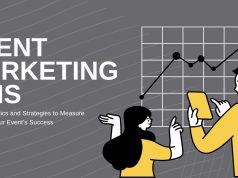Organizing a music event is no small feat, but marketing it effectively to attract a crowd could feel even more daunting. Whether you’re planning a small local gig or a large-scale music festival, the success of your event heavily relies on your ability to get the word out and generate excitement.
Why Marketing Matters for Music Events
Before jumping into the marketing tactics, let’s understand why an effective marketing plan is crucial. A well-marketed music event achieves more than ticket sales. It establishes your brand, builds a loyal community, and attracts attention from artists, sponsors, and industry professionals for future opportunities.
Even the best lineup won’t guarantee attendance if people don’t know about the event. Marketing connects your music event to the right audience, creating buzz to ensure no one misses out.
Now, let’s break down the strategies step by step.
Step 1: Identify Your Target Audience
Who are you putting on this event for? Knowing your audience is critical to crafting a marketing plan that resonates. Here’s how to get started:
Understand Audience Demographics
Identify the age, interests, location, and spending habits of your ideal attendees. Are you targeting 20-somethings who love indie rock or families who enjoy jazz festivals?
Study Similar Events
Research other music events in your area or genre to determine who attends, and note which marketing strategies seem to work for them.
Once you’re clear on your audience, you can create tailored marketing messages that grab their attention.
Step 2: Create a Memorable Event Brand
Your event needs its own identity to stand out. A cohesive brand sets the tone and communicates the vibe of your music event.
Design a Captivating Logo
A simple, visually striking logo is essential for event branding. Use colors and fonts that reflect the genre or mood of your event.
Develop an Engaging Theme
Strong themes can make your event memorable. For instance:
- A “Retro 80s Night” for a synthwave concert
- “Sunset Sessions” for a beachside acoustic jam
Choose a theme that fits your event and connects with your audience emotionally.
Use Consistent Visual Branding
Ensure all marketing materials (flyers, social media posts, email campaigns, and merchandise) maintain consistent visuals, logos, and messaging.
Step 3: Build a Strong Online Presence
Online platforms will likely be your primary tools for spreading the word. Here’s how to make sure your music event makes a big splash on the web.
Create an Event Website
Your event website is the digital hub for all information about the music event. Include:
- Event details (date, time, venue, lineup)
- Ticket purchasing links
- FAQs (parking, refunds, accessibility)
- Teaser videos or promotional artwork
Leverage Social Media
Platforms like Instagram, TikTok, Facebook, and Twitter are perfect for marketing music events. Be consistent, creative, and interactive. Consider:
- Countdown posts leading up to the event
- Behind-the-scenes clips or artist interviews
- Polls and Q&A sessions to engage your audience
You can also use platform-specific features like Instagram Stories, TikTok trends, or Facebook Events for maximum visibility.
Collaborate with Influencers
Partner with local influencers, musicians, or bloggers who align with your event’s brand. They can promote your event to their followers, giving your marketing plan a significant boost.
Step 4: Leverage Email Marketing
Email marketing remains one of the most effective ways to connect with your potential attendees directly.
Build Your Email List
Gather email addresses through early registrations, contests, or a sign-up form on your event website.
Send Engaging Emails
Send a series of well-timed emails, including:
- Exclusive first access to tickets
- Lineup announcements
- Reminder emails as the event date gets closer (e.g., “Just 3 days until [Event Name]!”)
Keep your emails visually appealing with sharp images, strong call-to-actions (CTAs), and concise copy.
Step 5: Make the Most of Local Advertising
Don’t underestimate the power of connecting with your local community, especially if you’re planning a smaller-scale music event.
Use Posters and Flyers
Place eye-catching posters and flyers in high-traffic areas like coffee shops, gyms, bookstores, and music schools. Bold visuals and a clear event date will make your materials stand out.
Team Up with Local Businesses
Partner with neighboring businesses to cross-promote the event. Coffee shops and bars could offer discounts for showing an event ticket, or they could directly advertise flyers at their store.
Secure Media Coverage
Reach out to local radio stations, blogs, and newspapers to cover your event or feature an artist interview. Building buzz offline can supplement your online marketing efforts.
Step 6: Generate Buzz with Promotions and Incentives
People love feeling like they’re getting something extra. Use promotions to draw attention to your music event and encourage early ticket sales.
Offer Early-Bird Tickets
Provide discounted ticket prices for a limited time to create urgency and boost sales.
Run Social Contests
Host giveaways for free tickets, merch, or VIP upgrades. For example:
- “Tag a friend you’d bring to [Event Name] and win two free tickets!”
- “Share this post to enter our [Event Name] merch giveaway!”
Provide Exclusive Benefits
Add value to your event by including VIP packages that include perks like meet-and-greets, reserved seating, or limited-edition merchandise.
Step 7: Engage During and After the Event
Your marketing efforts shouldn’t stop once the music starts. Continued engagement during and after the event can set you up for long-term success.
Use Live Social Media Updates
Share live event updates via Instagram Stories or Twitter to engage remote fans and build buzz for future events.
Collect Feedback
Send out post-event surveys or encourage attendees to leave reviews on your website or social platforms.
Share Highlights
Post photos and videos from the event afterward. Highlighting the energy and experience can encourage potential attendees to look forward to your next music event.
Turn Your Music Event Into a Must-Attend Experience
Marketing a music event successfully requires equal parts creativity, strategy, and execution. By knowing your audience, leveraging multiple marketing channels, and nurturing engagement before and after the event, you’ll boost attendance, maximize enjoyment, and set the foundation for future events.
Feeling overwhelmed or need guidance? Reach out to one of our event marketing experts for personalized tips to amplify your event’s success.









